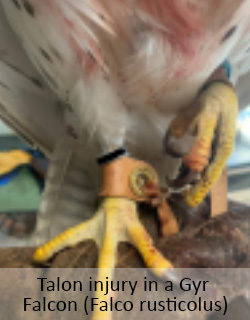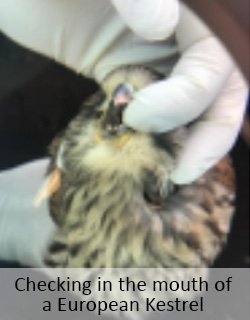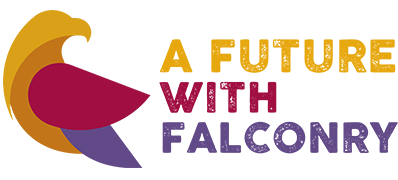When To Call A Vet?
With a plethora of things to consider when acquiring a new bird, especially if a first bird, ensuring you know what you will do in an emergency is often overlooked at the planning stages.
Despite us giving our birds the upmost care and attention, accidents happen and we have to be prepared that things can go wrong. It is important to know both who, and when to call, either in an emergency or when you suspect something is not simply just not right with your bird.
Find an Avian Vet
Before considering when you should call a vet, you need to have a vet! Prior to acquiring a bird, it is important to enquire locally to find an avian vet that equipped and able to treat your bird. Emergencies, when they do happen, are incredibly stressful. The added stress and delay of then trying to find a vet can be alleviated by having already registered.
This has become particularly important of late, as the guidelines set out by the Royal College of Veterinary Surgeons (RCVS) have undergone recent amendments; one of these being that vets are not obliged to see animals that are not registered at that practice.
So, to ensure that there are no delays in an emergency, or indeed if your bird just needs seeing or you require advice, it is imperative that you register with an avian vet, as locally as possible (for details on how to find avian vets in the UK, please see the links at the end of this article).

Radiograph of fractured ulna
in a Peregrine Falcon (Falco peregrinus)

When should you be concerned?
So, you’ve registered with a vet, and you have your bird. But how do you know when a vet may need to be consulted? There is no single easy answer to this question, but the best advice to be given is to get to know your bird.
Falconry lends itself to us knowing our birds intrinsically; no other sport, hobby or even professional engagement with animals involves weighing them daily, for example. This means that with birds of prey in captivity, we can pick up on early warning signs of disease.
However, that said, birds are particularly good as masking signs compared to mammals, and even moderate to severed disease can go unchecked until the last moment. This means it is vital to know every habit of your bird, so at the first sign of unexplainable change, things can be investigated if necessary.
Signs to look out for

Although not exhaustive, there are some common signs to look for in your bird and their appearance, behaviour and daily routine. Some of the more common signs have been listed below:
- Presence of blood, or other obvious injury To any visible part of the bird’s body
- Unexplained reduction in appetite/enthusiasm for food, either in the aviary or in the field
- Apparent reduction in fitness or keenness to fly: most notable in flying and hunting birds
- Holding one or both eyes closed
- Quieter than usual (for example a noisy imprint that suddenly isn’t calling)
- When at rest in the aviary or on the block or bow perch, appearing more tucked up than usual, with feathers fluffed up
- Exaggerated tail-bobbing, especially when at rest
- Holding one foot up persistently without switching
- Unexplained weight loss over a period of days
- Discoloured mutes; either in colour or presence of blood
- Presence of ticks in the later summer months (August to September), as require immediate removal
Conclusion
As avian vets, we are here to help you and your bird(s). We do what we do because of our passion for working with birds, and their prospective falconers and owners. So do not be scared of us!
It is always best to speak to or see a vet early on if there is an issue, rather than waiting until things have progressed and it is potentially too late. So, if in doubt, ask your vet. After all, as vets and falconers, we all just want the best for our birds.
Find an avian vet
> Association of Avian Vets
> British Veterinary Zoological Society



